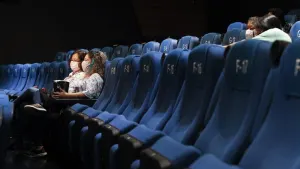More Stories
Universities across the nation are formulating their plans to keep students, educators and staff safe from COVID-19.
For example, Harvard and Princeton universities will bring back some students to campus this fall to reduce the density and prevent the spread of the virus.
Because the COVID-19 situation continues to evolve locally and nationally, the plans for many of the universities are still a work in progress.
Here are nine changes you can expect this fall:
1. Hybrid classes
Most universities will have some kind of hybrid class schedule, splitting time between in-person classes and remote learning. Some schools will only offer classes remotely.
Harvard University officials decided to allow only 40% of undergraduates on campus in an effort to reduce density and prevent the spread of COVID-19. All freshmen will be invited, along with some other students who face challenges learning from afar. All classes will be taught online, however, regardless of where students live.
In deciding which students to invite, Harvard's president said he “could not help but recognize the unique position that first-year students find themselves in, making the transition to college in these strange times.”
A surge in coronavirus cases in the Los Angeles region prompted the University of Southern California to drop plans to have undergraduate students back in the classroom and instead offer most classes online.
For example, Harvard and Princeton universities will bring back some students to campus this fall to reduce the density and prevent the spread of the virus.
Because the COVID-19 situation continues to evolve locally and nationally, the plans for many of the universities are still a work in progress.
Here are nine changes you can expect this fall:
1. Hybrid classes
Most universities will have some kind of hybrid class schedule, splitting time between in-person classes and remote learning. Some schools will only offer classes remotely.
Harvard University officials decided to allow only 40% of undergraduates on campus in an effort to reduce density and prevent the spread of COVID-19. All freshmen will be invited, along with some other students who face challenges learning from afar. All classes will be taught online, however, regardless of where students live.
In deciding which students to invite, Harvard's president said he “could not help but recognize the unique position that first-year students find themselves in, making the transition to college in these strange times.”
A surge in coronavirus cases in the Los Angeles region prompted the University of Southern California to drop plans to have undergraduate students back in the classroom and instead offer most classes online.
2. School calendar changes
The fall academic calendar may change.
Hofstra University, for example, will begin classes one week early and will end before Thanksgiving. This change will reduce travel back and forth for the Thanksgiving holiday and ensure students are home before the winter cold and flu season begins.
SUNY's Purchase College will also end all in-person instruction by Thanksgiving, with the semester finishing remotely for all students.
3. Masks
All students and employees must wear masks in all campus buildings.
The fall academic calendar may change.
Hofstra University, for example, will begin classes one week early and will end before Thanksgiving. This change will reduce travel back and forth for the Thanksgiving holiday and ensure students are home before the winter cold and flu season begins.
SUNY's Purchase College will also end all in-person instruction by Thanksgiving, with the semester finishing remotely for all students.
3. Masks
All students and employees must wear masks in all campus buildings.
Masks may also be required outdoors when six feet of physical distance is not possible. Every person on Princeton University's campus, including visitors, will be required to wear a face covering when inside, except in a dormitory or apartment.
4. Physical distance
Everyone will be required to socially distance. Classrooms and public spaces are expected to be reconfigured to ensure distancing.
Harvard will implement social distancing and dedicated quarantine space in dorms.
Princeton undergraduate students returning to campus must sign what the university is calling a "social contract" -- which outlines their commitment to following the health and safety protocols designed by the school.
In December, Yale University will have a "quiet period" with in-person activity on campus kept to a minimum.
Everyone will be required to socially distance. Classrooms and public spaces are expected to be reconfigured to ensure distancing.
Harvard will implement social distancing and dedicated quarantine space in dorms.
Princeton undergraduate students returning to campus must sign what the university is calling a "social contract" -- which outlines their commitment to following the health and safety protocols designed by the school.
In December, Yale University will have a "quiet period" with in-person activity on campus kept to a minimum.
Check what your schools' group limit is. Adelphi University asks students to not gather in groups of 10 or more.
5. Daily health screenings
Universities will require students and employees to go through some daily health screenings. At Hofstra University, everyone will have to answer a three-question screening via the school’s portal or smartphone app before going to campus.
6. Residence life
Because of the need for social distancing, on-campus housing might be limited.
Because most courses will be delivered remotely, Rutgers University will have extremely limited housing.
At Yale, for fall 2020, only first-year students, juniors and seniors will have the option to live on campus. For the spring 2021 semester, students that will be allowed to live on campus will alternate.
7. Campus life/community
Life on campus will look different.
To operate within the mandates and guidelines issued by the states and the CDC, schools will need to reduce population density on campus.
This means that, to reduce the risk of infection, many colleges will only allow a limited number of students on campus.
5. Daily health screenings
Universities will require students and employees to go through some daily health screenings. At Hofstra University, everyone will have to answer a three-question screening via the school’s portal or smartphone app before going to campus.
6. Residence life
Because of the need for social distancing, on-campus housing might be limited.
Because most courses will be delivered remotely, Rutgers University will have extremely limited housing.
At Yale, for fall 2020, only first-year students, juniors and seniors will have the option to live on campus. For the spring 2021 semester, students that will be allowed to live on campus will alternate.
7. Campus life/community
Life on campus will look different.
To operate within the mandates and guidelines issued by the states and the CDC, schools will need to reduce population density on campus.
This means that, to reduce the risk of infection, many colleges will only allow a limited number of students on campus.
Many school sponsored events will now be held virtually, or in a safe social distancing way - like outdoor movie screenings and fitness classes.
8. Sports
College sports may be suspended, delayed or look much different for the fall semester.
The Ivy League became the first Division I conference to suspend all fall sports, including football, leaving open the possibility of moving some seasons to the spring if the coronavirus outbreak is better controlled by then.
8. Sports
College sports may be suspended, delayed or look much different for the fall semester.
The Ivy League became the first Division I conference to suspend all fall sports, including football, leaving open the possibility of moving some seasons to the spring if the coronavirus outbreak is better controlled by then.
The NCAA is also taking proactive measures to mitigate the impact of COVID-19. Click here to see some of its measures to protect the health and safety of college athletes.
9. Travel
Universities may restrict business travel as well as student travel, and limit it to essential travel only.
Universities may restrict business travel as well as student travel, and limit it to essential travel only.
More from News 12

Your Coronavirus 2020 Photos
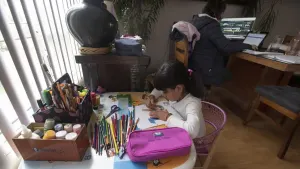
10 online learning tools for students to use at home
11:21:40
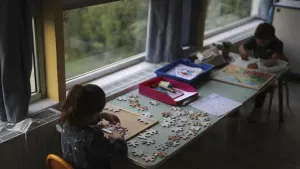
6 tips for home schooling children and remote learning
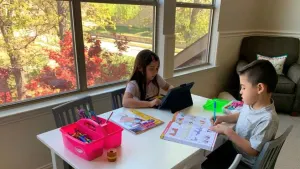
7 online remote learning tools for educators
8:38:20
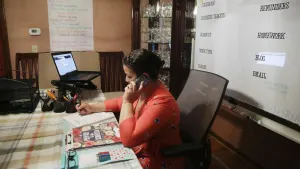
17 tips for students, parents and teachers using video in virtual classes
13:33:20
